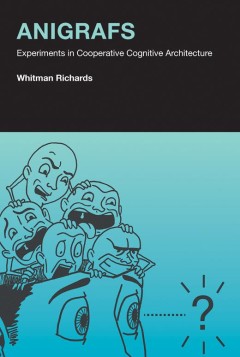Filter by

Design of Heuristic Algorithms for Hard Optimization: With Python Codes for t…
This open access book demonstrates all the steps required to design heuristic algorithms for difficult optimization. The classic problem of the travelling salesman is used as a common thread to illustrate all the techniques discussed. This problem is ideal for introducing readers to the subject because it is very intuitive and its solutions can be graphically represented. The book features a we…
- Edition
- 1
- ISBN/ISSN
- 978-3-031-13714-3
- Collation
- -
- Series Title
- Graduate Texts in Operations Research
- Call Number
- XV, 287

Multi-Winner Voting with Approval Preferences
- Edition
- 1
- ISBN/ISSN
- 978-3-031-09016-5
- Collation
- -
- Series Title
- SpringerBriefs in Intelligent Systems
- Call Number
- XI, 121
- Edition
- 1
- ISBN/ISSN
- 978-3-031-09016-5
- Collation
- -
- Series Title
- SpringerBriefs in Intelligent Systems
- Call Number
- XI, 121

Ethics of Artificial Intelligence: Case Studies and Options for Addressing Et…
This open access collection of AI ethics case studies is the first book to present real-life case studies combined with commentaries and strategies for overcoming ethical challenges. Case studies are one of the best ways to learn about ethical dilemmas and to achieve insights into various complexities and stakeholder perspectives. Given the omnipresence of AI ethics in academic, policy and medi…
- Edition
- 1
- ISBN/ISSN
- 978-3-031-17040-9
- Collation
- -
- Series Title
- SpringerBriefs in Research and Innovation Governance
- Call Number
- XII, 116

Statistical Foundations of Actuarial Learning and its Applications
This open access book discusses the statistical modeling of insurance problems, a process which comprises data collection, data analysis and statistical model building to forecast insured events that may happen in the future. It presents the mathematical foundations behind these fundamental statistical concepts and how they can be applied in daily actuarial practice. Statistical modeling has…
- Edition
- 1
- ISBN/ISSN
- 978-3-031-12409-9
- Collation
- -
- Series Title
- Springer Actuarial
- Call Number
- XII, 605

Artificial Intelligence
This book begins with the past and present of the subversive technology of artificial intelligence, clearly analyzes the overall picture, latest developments and development trends of the artificial intelligence industry, and conducts in-depth research on the competitive situation of various countries. The book also provides an in-depth analysis of the opportunities and challenges that artifici…
- Edition
- 1
- ISBN/ISSN
- 978-981-15-6548-9
- Collation
- -
- Series Title
- -
- Call Number
- Palgrave Macmillan Singapore

Towards Responsible Plant Data Linkage: Data Challenges for Agricultural Rese…
This open access book provides the first systematic overview of existing challenges and opportunities for responsible data linkage, and a cutting-edge assessment of which steps need to be taken to ensure that plant data are ethically shared and used for the benefit of ensuring global food security – one of the UN’s Sustainable Development Goals. The volume focuses on the contemporary contou…
- Edition
- 1
- ISBN/ISSN
- 978-3-031-13276-6
- Collation
- -
- Series Title
- -
- Call Number
- XIX, 317

Artificial Intelligence
This book begins with the past and present of the subversive technology of artificial intelligence, clearly analyzes the overall picture, latest developments and development trends of the artificial intelligence industry, and conducts in-depth research on the competitive situation of various countries. The book also provides an in-depth analysis of the opportunities and challenges that artifici…
- Edition
- 1
- ISBN/ISSN
- 978-981-15-6548-9
- Collation
- -
- Series Title
- -
- Call Number
- XXI, 322

Artificial Intelligence Basics
Artificial intelligence touches nearly every part of your day. While you may initially assume that technology such as smart speakers and digital assistants are the extent of it, AI has in fact rapidly become a general-purpose technology, reverberating across industries including transportation, healthcare, financial services, and many more. In our modern era, an understanding of AI and its poss…
- Edition
- 1
- ISBN/ISSN
- 978-1-4842-5028-0
- Collation
- -
- Series Title
- -
- Call Number
- XII, 187

Entity Alignment
This open access book systematically investigates the topic of entity alignment, which aims to detect equivalent entities that are located in different knowledge graphs. Entity alignment represents an essential step in enhancing the quality of knowledge graphs, and hence is of significance to downstream applications, e.g., question answering and recommender systems. Recent years have witnessed …
- Edition
- -
- ISBN/ISSN
- 978-981-99-4250-3
- Collation
- XI, 247
- Series Title
- -
- Call Number
- -

Anigrafs :experiments in cooperative cognitive architecture
"In this book, Whitman Richards offers a novel and provocative proposal for understanding decision making and human behavior. Building on Valentino Braitenberg's famous 'vehicles, ' Richards describes a collection of mental organisms that he calls 'daemons'--virtual correlates of neural modules. Daemons have favored choices and make decisions that control behaviors of the group to which they be…
- Edition
- -
- ISBN/ISSN
- 0262329115
- Collation
- 1 online resource (xiii, 148 pages) :illustrations
- Series Title
- -
- Call Number
- -
 Computer Science, Information & General Works
Computer Science, Information & General Works  Philosophy & Psychology
Philosophy & Psychology  Religion
Religion  Social Sciences
Social Sciences  Language
Language  Pure Science
Pure Science  Applied Sciences
Applied Sciences  Art & Recreation
Art & Recreation  Literature
Literature  History & Geography
History & Geography